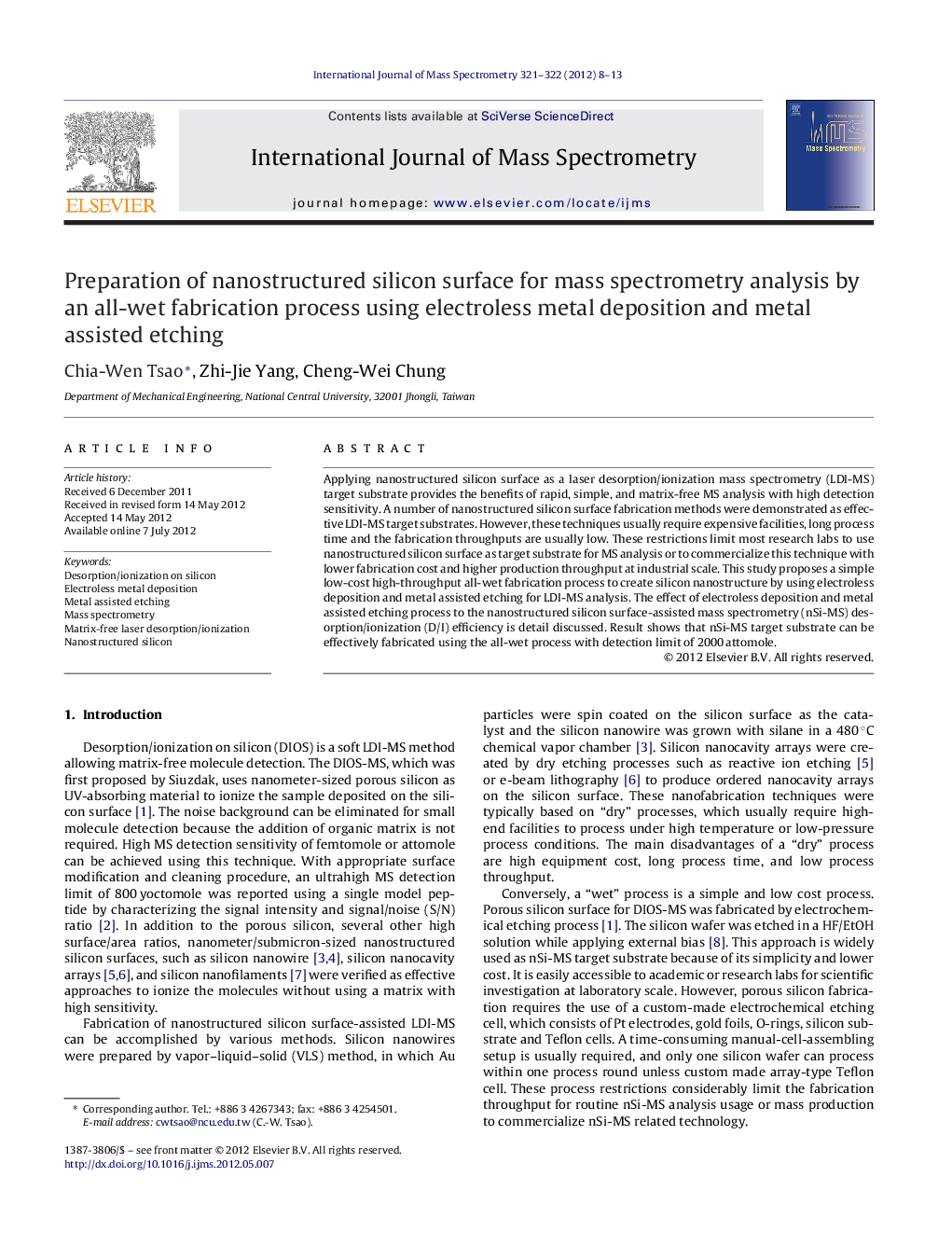| Article ID | Journal | Published Year | Pages | File Type |
|---|---|---|---|---|
| 1193504 | International Journal of Mass Spectrometry | 2012 | 6 Pages |
Applying nanostructured silicon surface as a laser desorption/ionization mass spectrometry (LDI-MS) target substrate provides the benefits of rapid, simple, and matrix-free MS analysis with high detection sensitivity. A number of nanostructured silicon surface fabrication methods were demonstrated as effective LDI-MS target substrates. However, these techniques usually require expensive facilities, long process time and the fabrication throughputs are usually low. These restrictions limit most research labs to use nanostructured silicon surface as target substrate for MS analysis or to commercialize this technique with lower fabrication cost and higher production throughput at industrial scale. This study proposes a simple low-cost high-throughput all-wet fabrication process to create silicon nanostructure by using electroless deposition and metal assisted etching for LDI-MS analysis. The effect of electroless deposition and metal assisted etching process to the nanostructured silicon surface-assisted mass spectrometry (nSi-MS) desorption/ionization (D/I) efficiency is detail discussed. Result shows that nSi-MS target substrate can be effectively fabricated using the all-wet process with detection limit of 2000 attomole.
Graphical abstractFigure optionsDownload full-size imageDownload high-quality image (190 K)Download as PowerPoint slideHighlights► A simple low-cost high-throughput all-wet fabrication process to create silicon nanostructure for mass spectrometry analysis is proposed. ► Electroless deposition and etching time effects are discussed. ► 150 s electroless deposition and 180 s etching time show highest mass spectrometry detection sensitivity. ► Silicon nanostructure surface assisted mass spectrometry can be used at lower fabrication cost and higher production throughput.
